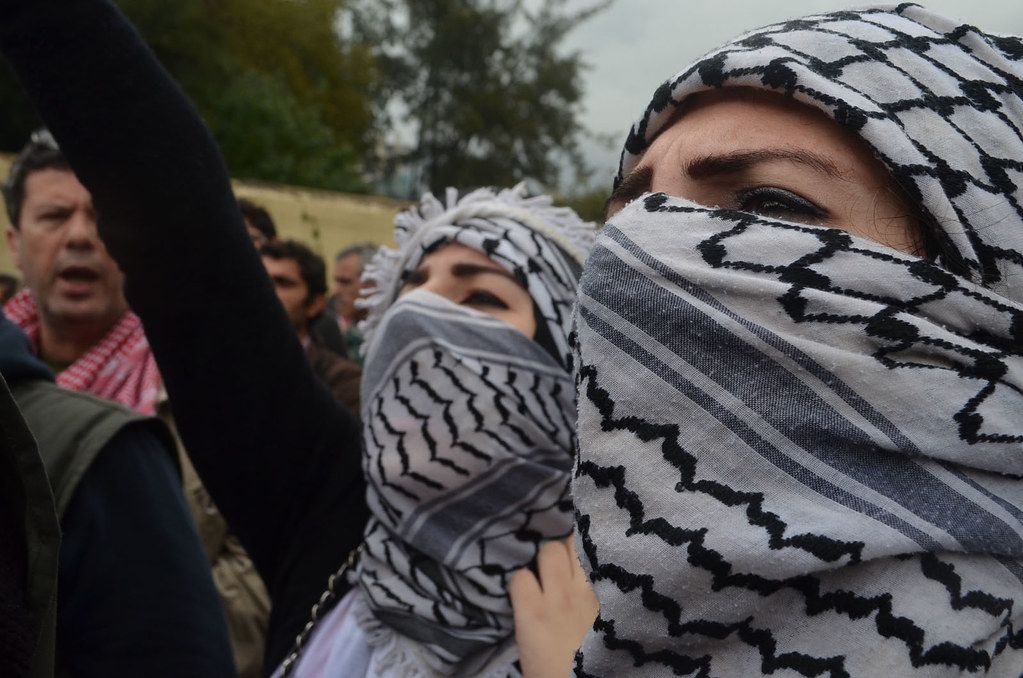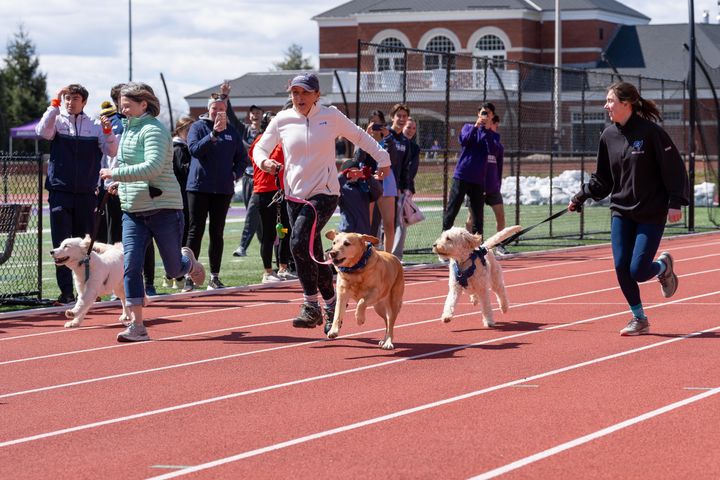Giving Birth in the Rubble: Healthcare Access for Palestinian Women Amidst Violence and Displacement
Logan Maniscalo ’24 sheds light on the horrific conditions faced by Palestinian women due to Israel’s assault on Gaza.

Trigger warning: mentions of mass murder/genocide, maternal mortality, starvation.
The Israeli government is carrying out a genocide against the Palestinian people. For over 100 days, Palestinian civilians have faced a barrage of bombings, assassinations, displacement, illness, injury, and more by the hands of the Israeli government. As of Feb. 21, Al Jazeera estimates 29,000 people have been killed. Of those displaced from their homes in Gaza, nearly one million are women and girls, according to a January UN report. Over 3,000 women have been widowed and have often become the new heads of household. An estimate of 50,000 women in Gaza are pregnant as of Dec. 8 last year, with an estimated 180 giving birth daily. Palestinian women are acutely impacted amidst this genocide and face a unique intersection of oppression including lack of access to reproductive healthcare, menstrual care supplies, medication, suitable conditions for pregnancy and childbirth, and more. As we stay up to date on the massacres unfolding in Gaza, we must remember that the fight for Palestinian liberation must always include the safety, well-being, and livelihood of Palestinian women and girls.
Mass displacement for Palestinians has meant that large groups of people are crammed into makeshift camps in their search for shelter and protection. The close quarters along with lack of access to restrooms, clean running water, and proper toilets create highly sanitary and unsafe living conditions. For Palestinian women, nearly 700,000 of which are menstruating at any given time, there are no hygienic conditions in which to take care of their bodily functions. Also, due to the total siege on Gaza (which has heavily restricted movement), there is no way for period products — and hygiene products in general — to enter the territory, resulting in Palestinian women and girls being forced to use tent scraps as pads. These conditions lead to infection and illness as the conditions in Gaza worsen.
The siege has restricted the flow of pre- and post-natal medication, healthcare, and supplies for Palestinian women and their newborn babies. Some women have been forced to undergo childbirth with no pain medication. Women who experience complications during labor are forced to undergo cesarean sections with partial or no anesthesia, sometimes causing death. Women who are able to reach a hospital or health center are only admitted once fully dilated and are discharged as little as three hours after giving birth due to a lack of beds, supplies, and medication. They are then often sent to shelters or camps with unsanitary conditions, dramatically increasing the risk of infection and disease. There has been a continuous increase in stress-induced miscarriages, stillbirths, and premature births amidst the violence.
The unlawful denial of humanitarian access and depriving civilians of objects indispensable to their survival is a violation of international humanitarian law.
After giving birth, the conditions for these women do not improve. People in Gaza are facing starvation and severe dehydration alongside a lack of hygiene. In the context of reproductive health, this is extremely dire. Women are struggling with producing enough milk to breastfeed. For those unable to breastfeed entirely, they are forced to rely on formula, for which the price has tripled and continues to rise. Additionally, malnutrition has increased the risk of maternal death putting both the life of the mother and prognosis of the fetus at stake.
The use of starvation of civilians as a method of warfare is prohibited under international humanitarian and criminal law.
These conditions are exponentially worse for Palestinians living with physical disabilities. According to the Human Rights Watch, people with disabilities are among those most affected by the genocide and displacement. As stated by the Abolition and Disability Justice Collective, “Disability justice cannot exist under settler colonialism, military occupation, imprisonment, and apartheid. We write this in support of the Palestinian struggle for freedom, dignity, and self-determination … Disability justice requires solidarity with Palestine.”
The heavily restricted movement due to the siege by the Israeli government has led to a lack of access to assistive devices and healthcare for people with disabilities. A lack of fuel and electricity has also heavily affected those with electric assistive devices such as mobility scooters. For those who cannot walk and whose movement is determined by access to wheelchairs, walkers, or crutches, the rubble-filled streets make movement impossible. As the Israeli government has ordered people to move further and further south and continues to disable civilians by way of bombing leading to amputations on a large scale, moving is not an option.
And now, as the Israeli government has pushed all surviving civilians into Rafah, there is nowhere to go.
Again, the unlawful denial of humanitarian access and depriving civilians of objects indispensable to their survival is a violation of international humanitarian law.
As Palestinian women — especially disabled Palestinian women — face a genocide, we must remember the distinct intersection of sex, gender, and ability in this moment. As Palestinians are now being pushed into Rafah against the southern border of the Gaza Strip under orders from the Israeli army, we must remember that the violence of the Israeli government includes the restriction of access to many vital resources indispensable to the survival of Palestinians, the forced migration of Palestinians into densely packed, unhygienic camps and shelters, and the massacre of Palestinian women and children. If we dedicate ourselves to disability justice, to labor justice, to reproductive justice, this must also include a dedication to Palestinian liberation.
There is no justice for anyone without justice for Palestinian women.
For guidance on what you can do, keep reading.
- Donate an eSim to people in Gaza: Visit gazaesims.com for instructions on how to purchase and donate an eSim.
- Operation Olive Branch: Donate to a family in Gaza or promote their story using this spreadsheet.
- Call and/or email your state representatives and urge them to support a ceasefire.
- Attend a local protest.
- Uplift the voices of pro-Palestinian activists and reporters.
- Support Palestinian-owned brands.





Comments ()